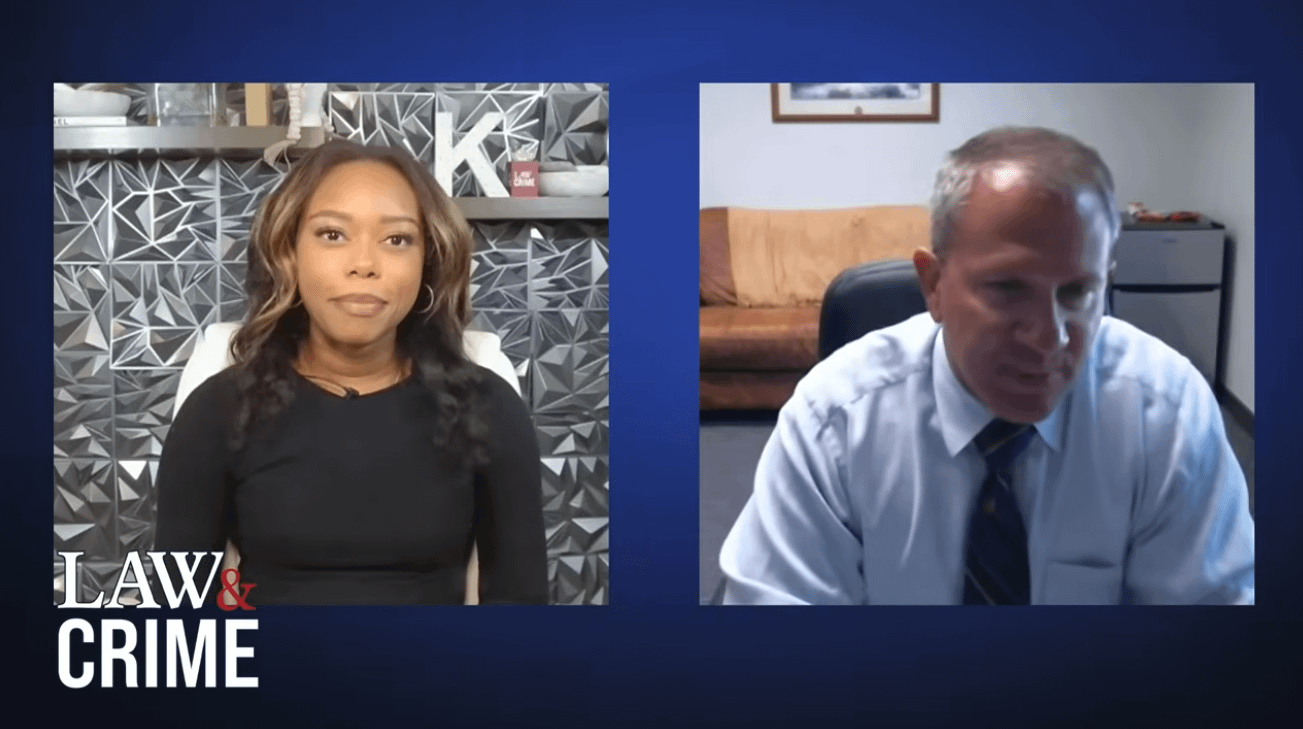Contents
- FEATURE ARTICLE: ABA Formal Opinion 501: Supervising Solicitation
- NEW AUTHORITY: An Ohio Case on Rule 7.3(a)
- ETHICS & MALPRACTICE RESEARCH TIP: New Articles Drawn from the Current Index of Legal Periodicals
- BLAST FROM THE PAST: Clarence Darrow’s Cynical Appraisal of Justice
EDITED BY: Professor Mike Hoeflich
PUBLISHED BY: Joseph, Hollander & Craft LLC
View or download the PDF version
FEATURE ARTICLE
ABA Formal Opinion 501: Supervising Solicitation
On April 13, 2022, the American Bar Association Standing Committee on Ethics and Professional Responsibility released Formal Opinion 501, which provides guidance on compliance with Rule 7.3 and its interaction with Rules 8.4 and 5.3. The Opinion begins by reminding lawyers who hold managerial or supervisory roles in their law firms of their obligations under Rules 5.3(b)–(c) and 8.4(a). KRPC Rule 5.3(b) reads:
A lawyer having direct supervisory authority over another lawyer shall make reasonable efforts to ensure that the other lawyer conforms to the rules of professional conduct.
KRPC 5.3(c) reads:
A lawyer shall be responsible for another lawyer’s violation of the rules of professional conduct if:
(1) The lawyer orders or, with knowledge of the specific conduct, ratifies the conduct involved; or
(2) The lawyer is a partner or has comparable managerial authority in the law firm in which the other lawyer practices, or has direct supervisory authority over the other lawyer, and knows of the conduct at a time when its consequences can be avoided or mitigated but fails to take reasonable remedial action.
MRPC Rule 4-5.3(b) reads:
A lawyer having direct supervisory authority over the nonlawyer shall make reasonable efforts to ensure that the person’s conduct is compatible with the professional obligations of the lawyer.
MRPC Rule 4-5.3(c) reads:
A lawyer shall be responsible for conduct of such a person that would be a violation of the Rules of Professional Conduct if engaged in by a lawyer if:
(1) the lawyer orders or, with the knowledge of the specific conduct, ratifies the conduct involved; or
(2) the lawyer is a partner, or has comparable managerial authority in the law firm in which the person is employed, or has direct supervisory authority over the person and knows of the conduct at a time when its consequences can be avoided or mitigated but fails to take reasonable remedial action.
The ABA Model Rules 5.3(b) and (c) are substantially the same as those adopted in Missouri and Kansas.
KRPC Rule 8.4(a) reads:
It is professional misconduct for a lawyer to:
Violate or attempt to violate the rules of professional conduct, knowingly assist or induce another to do so, or do so through the acts of another…
MRPC 4-8.4(a) and Model Rule 8.4(a) are the same as KRPC 8.4(a).
The overall impact of the combination of Rules 5.3(b) and (c) and 8.4(a) is that lawyers may be held responsible for the ethical breaches of others in their law firms in some circumstances. Formal Opinion 501 is specifically concerned with making lawyers understand that this liability for others in law firms whom they supervise extends to breaches of the solicitation Rules set out in Rule 7.3. KRPC Rules 7.3(a)-(b) read:
(a) A lawyer shall not by in-person, live telephone or real-time electronic contact solicit professional employment when a significant motive for the lawyer’s doing so is the lawyer’s pecuniary gain, unless the person contacted:
(1) Is a lawyer; or
(2) Has a family, closer personal, or prior professional relationship with the lawyer.(b) A lawyer shall not solicit professional employment by written, recorded or electronic communication or by in-person, telephone or real-time electronic contact even when not otherwise prohibited by paragraph (a), if:
(1) The target of the solicitation has made known to the lawyer a desire not to be solicited by the lawyer; or
(2) The solicitation involves coercion, duress or harassment.
An Ohio Case on Rule 7.3(a)
On The Supreme Court of Ohio issued an opinion on February 12, 2020, in a disciplinary case in which a lawyer, Natalie J. Bahan, was accused of violating the prohibition against direct solicitation under Ohio Rule 7.3(a) as well as Ohio Rules 8.4(d) (prohibiting behavior prejudicial to the justice system) and 8.4(h) (prohibiting conduct that reflects a lawyer’s unfitness to practice law).[1]
Ms. Bahan made an unsolicited visit to a woman who was accused of murdering her husband and who was incarcerated at the time of the visit. Ms. Bahan had no prior acquaintance with the accused nor did the accused request that she visit. Ms. Bahan learned of the woman’s problems on the Internet. She also sought out an experienced criminal lawyer and asked whether he believed that she could visit the accused. He apparently told her that he saw no problem with her plan. The opinion points out that there was some dispute over when Ms. Bahan sought out this advice and when and whether she discussed the ethical issues, including whether Ms. Bahan and the more experienced lawyer had any plan to charge the accused a fee.[2]
The Columbus Bar Association charged Ms. Bahan with the three ethical violations noted above. At her hearing before a disciplinary panel appointed by the Ohio Board of Professional Conduct she testified that she believed that she had not violated any of the three Rules cited because she had wanted only to counsel the accused about her rights because she believed that the accused might have been acting in self-defense against domestic violence. She also testified that she had no thought of pecuniary gain in visiting the accused and that she saw the representation of the accused as an opportunity for her to gain trial experience. In addition, Ms. Bahan stated that she sent the accused a bill “only at the request” of the accused. The panel found insufficient evidence that Ms. Bahan had violated Ohio Rules 8.4 (a) of 8.4(h). They did, however, find that she had violated Ohio Rule 7.3(a) and recommended a stayed six-month suspension of her license. Ms. Bahan appealed.
The Ohio Supreme Court agreed with the panel’s finding. The Court found several facts to be significant. . . .
References:
- Columbus Bar Association v. Bahan, 159 Ohio St.3d 479, 152 N.E.3d 189 (Ohio 2020).
- Bahan, 159 Ohio St.3d at 483.
ETHICS & MALPRACTICE RESEARCH TIP
New Articles Drawn from the Current Index of Legal Periodicals
- Kenesha Starling, “Ethical Obligations of Self- Regulating Professions: A Comparison of ABA Model Rules and AMA Code of Medical Ethics Opinions Governing Professional Discretion and Confidentiality of Information, and the Impositions of Heightened Professional Responsibility,” 61 S. Tex. L. Rev. 159 (2021).
This is a fascinating comparison of the ethics rules applicable to the legal profession versus the medical profession. - David S. Rubenstein, “Acquiring Ethical AI,” 73 Fla. L. Rev. 747 (2021).
We must all continue to adapt to the ethical use of artificial intelligence in legal technology. - Lonnie T. Brown, “Criticizing Judges: A Lawyer’s Professional Responsibility,” 56 Ga. L. Rev. 161 (2021).
- Multiple Articles, The 2020 Clarke Prize Conference in Legal Ethics: Ethics, Risk, and Compliance with Organizational Clients. 56 Gonz. L. Rev. 205 (2020/2021).
BLAST FROM THE PAST
Clarence Darrow’s Cynical Appraisal of Justice
Clarence Darrow was one of the twentieth century’s greatest trial lawyers, whose dedication to individual rights changed America. This dedication led, towards the end of his life, to increasing opposition and eventually prosecution, which led him to become cynical about the possibilities of achieving a “just” system of laws. The following quote comes from an article he published in Scribner’s Magazine in February 1932:
Whatever visions we may form of the word “justice,” still it has never meant anything except adjusting human claims and human conduct to the established habits and customs and institutions of the world. Justice never can be a lofty ideal. It has no emotions nor passions. It has no wings. Its highest flight is to the Blind Goddess that stands on the courthouse roof. It savors of syllogisms and fine distinctions which have no meaning or value in the important matters of life. But there is no uncertainty in the meaning and effect of charity, of sympathy, of generosity, or of understanding. Without these man is dead. With them he can create a new world where human beings may have all the happiness that it is possible for life to give.
Clarence Darrow, “Who Knows Justice?” Scribner’s Magazine (February 1932), pp. 73-77, at p. 77.
About LEMR
The Legal Ethics & Malpractice Reporter (LEMR) is a monthly publication covering current developments in ethics and malpractice law. This popular, free publication, with close to 8,000 current subscribers, was envisioned by KU Law professor Mike Hoeflich, who serves as the publication’s editor in chief. In partnership with Professor Hoeflich, JHC’s legal ethics and malpractice group is pleased to publish this monthly online periodical to help attorneys better understand the evolving landscape of legal ethics, professional responsibility, and malpractice.
Get LEMR delivered to your inbox!
Make sure you don’t miss an issue of the Legal Ethics & Malpractice Reporter. Subscribe to our email list below to get a notification and digest of each edition as it is released.
About Joseph, Hollander & Craft LLC
Joseph, Hollander & Craft is a premier law firm representing criminal, civil and family law clients throughout Kansas and Missouri. When your business, your freedom, your property, or your career is at stake, you want the attorney standing beside you to be skilled, prepared, and relentless. From our offices in Kansas City, Lawrence, Overland Park, Topeka and Wichita, our team of 20+ attorneys has you covered. We defend against life-changing criminal prosecutions. We protect children and property in divorce cases. We pursue relief for victims of trucking collisions and those who have suffered traumatic brain injuries due to the negligence of others. We fight allegations of professional misconduct against doctors, nurses, judges, attorneys, accountants, real estate agents and others. And we represent healthcare professionals and hospitals in civil litigation.












